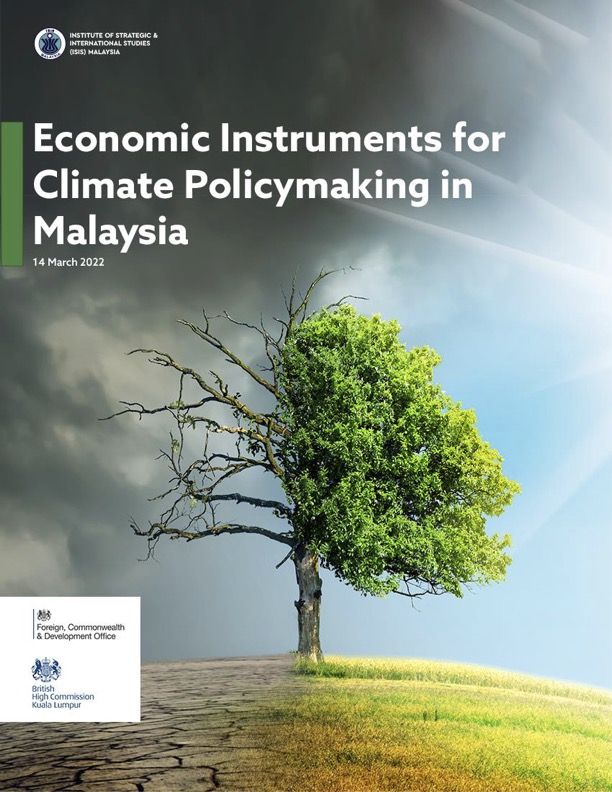By Ahmad Afandi, Alizan Mahadi and Darshan Joshi
Summary
Economic instruments have the potential to act as powerful policy levers to influence behaviour and institute change towards the achievement of desired outcomes, most often by altering monetary incentives. These instruments come in various forms, each achieving economic efficiencies to varying degrees.
As this brief shows, many of Malaysia’s existing instruments for climate change mitigation are ‘second-best instruments’, meaning they engender some degree of climate and environmental benefit, but do not fully address market failures such as the negative externality costs of greenhouse gas emissions, or the undervaluation of ecosystem services. For adaptation, the use of economic instruments has been found to be even more limited; much of the emphasis has been placed on post- disaster relief efforts.
This situation is changing with the government recently announcing a focus on potentially ‘first- best instruments’ for climate change, including Carbon Pricing Instruments (CPIs), Ecological Fiscal Transfer (EFT) and Payments for Ecosystem Services (PES).
While prospective instruments offer promise, effectiveness will depend on design and implementation. In general, this includes setting clear climate and environmental outcomes rather than focusing on economic bottom-lines as well as addressing the overall ecosystem holistically, including ending perverse incentives such as fossil fuel subsidies and enhancing governance by addressing rent-seeking and corruption practices that may otherwise distort markets.
For carbon pricing to be effective, accurate, long- term price signals (through a tax) or quantity limits (absolute emission caps for trading schemes) must be set. Additionally, any revenues should be earmarked to support further climate- related initiatives and reducing additional cost burdens imposed on lower-income subgroups, as opposed to being used for general government spending.
The implementation of Ecological Fiscal Transfers and Payments for Ecosystem Services will need to consider state-level interests. As natural resources are constitutionally a state matter, these instruments will be influenced by a bargaining process between state and federal levels of governance.
Ultimately, to ensure instruments such as PES are viable, the benefits needs to be equal to or greater than alternatives. This includes addressing any leakages and distortion of the market through rent- seeking and corruption practices.
This policy brief is based on a detailed technical report prepared by the Institute of Strategic and International Studies and supported by the South Asia Research Hub, Foreign, Commonwealth, and Development Office, and the British High Commission, Kuala Lumpur, entitled ‘Economic Instruments for Climate Policymaking in Malaysia’.





